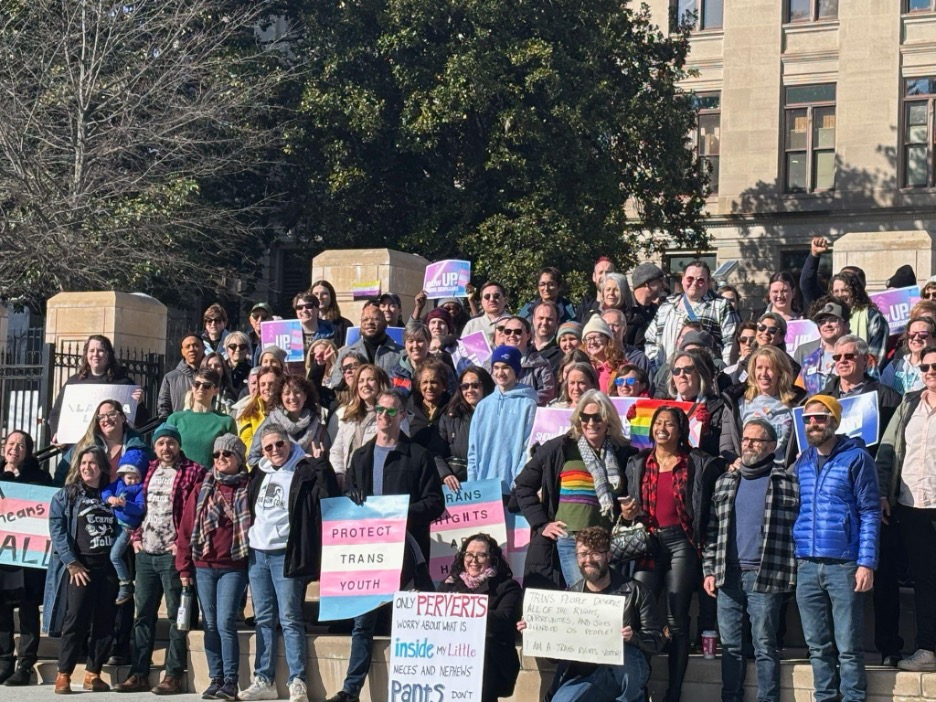Banning trans youth from participating in sports in Georgia may be a solution in search of a problem, but that did not stop conservative state lawmakers from making good on their promise to introduce anti-trans legislation on January 13, as the Georgia General Assembly began its legislative session at the State Capitol. Nor did it cause those impacted to be immobilized by fear.
Adjacent to the capitol, over 100 LGBTQ advocates and allies gathered outside in Liberty Plaza for the “Stand Up for Trans Georgians Rally.” Anti-trans legislation aimed at prohibiting trans youth from participating in high school and collegiate sports that align with their gender identity has been a priority for conservative lawmakers in Georgia even before the start of the legislative session. The Senate Committee on the Protection of Women’s Sports released recommendations in December, including removing the authority of high school athletic associations to regulate participation in girls’ sports and giving it to the state legislature.
“Across the nation, 115 bills targeting trans people have been pre-filed by 25 states,” said Carl Charles, Senior Attorney at Lambda Legal, during a press conference inside the statehouse after the rally. “That sounds bleak, but it should give us strength in that we are not alone in the fight against people who want trans Georgians and trans people in the United States to be pushed to the side to be marginalized. But we are here to say, not on our watch,” he added.
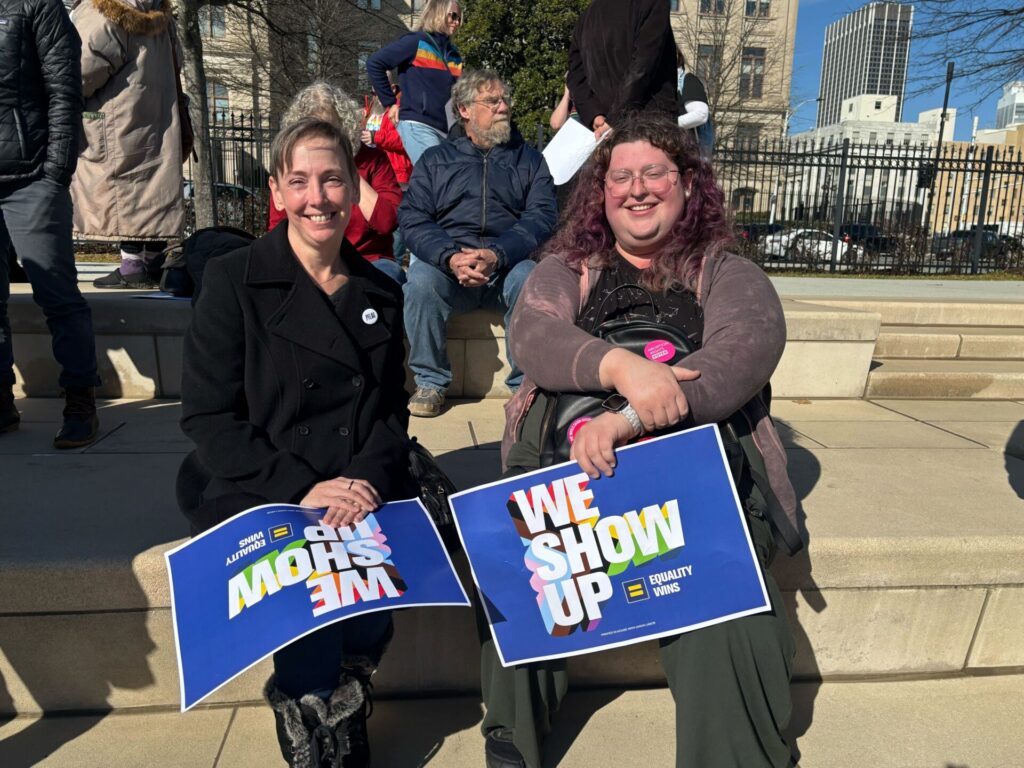
According to reporting from Rough Draft Atlanta, State Sen. Greg Dolezal (R-Cumming) introduced Senate Bill 1, the so-called “Fair and Safe Athletic Opportunities Act,” early Monday. SB 1 requires schools that host or sponsor sporting events to provide separate changing and dressing facilities for male and female athletes based on their sex assigned at birth.
Also, under SB 1, middle and high schools and colleges, including participating private schools, would be required to designate interscholastic sports teams as either male, female, or co-ed, based on the participant’s assigned sex at birth.
Lt. Gov. Burt Jones, who created the special senate committee last summer, praised SB 1, saying it was “common sense to everyone but the most radical liberals in Georgia.”
“Biological men (sic) do not belong in women’s sports, period,” said Lt. Governor Burt Jones in a news release. (The inaccurate term is often used by opponents of transgender people to diminish authentic identity and baselessly restrict access to activities and spaces.)
“The Senate has always led the way on protecting women’s sports and with Senate Bill 1, we will continue to be on the right side of this common-sense issue,” he said. “I look forward to Senate Bill 1 becoming law and the protection of women’s sports becoming a reality for all female athletes in Georgia.”
Georgia would become the 26th state to prohibit transgender student participation in sports with the passage of SB 1. Throughout the now years-long campaign against transgender student access to everyday activities their peers enjoy, lawmakers have consistently been unable to cite examples of transgender participation being an issue in their states, and the number of out trans athletes is smaller than the number of bills targeting them nationwide.
House Speaker Jon Burns (R-Newington) is also advocating similar anti-trans legislation. At a January 8 press conference to outline priorities for the 2025 legislative session, he said the re-election of Donald Trump is a “clear mandate” in the U.S. and in Georgia to continue to push restrictive policies and legislation.
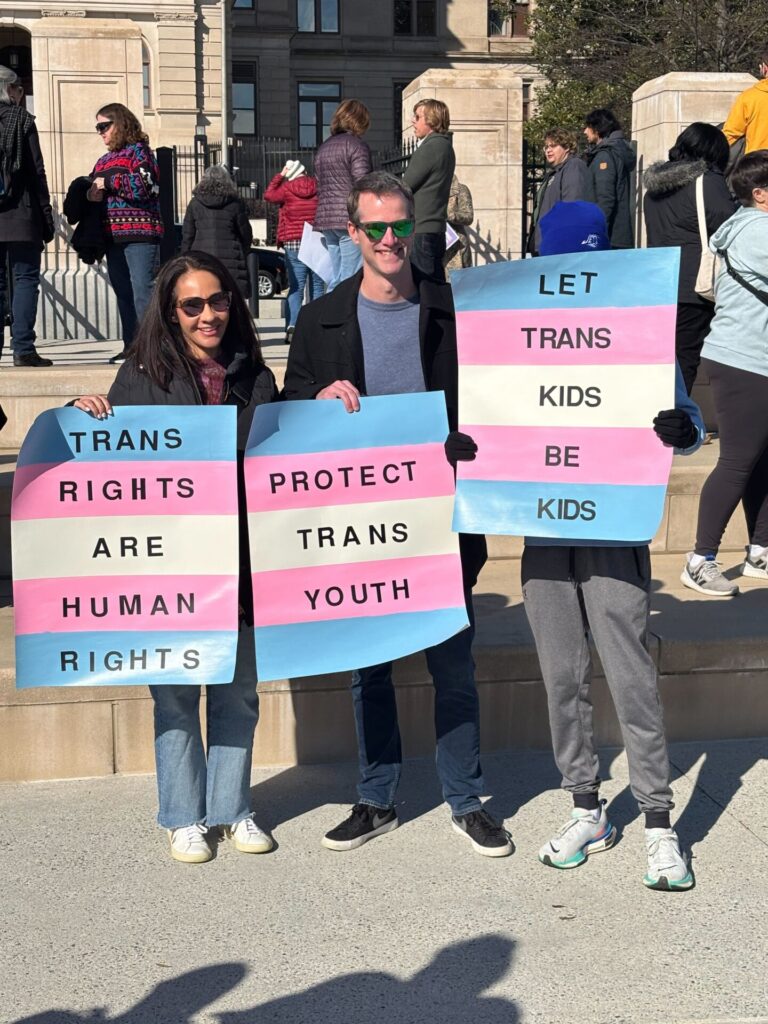
There is no evidence that restricting transgender students from school sports makes sports any safer or fairer. Research shows states with inclusive policies had more girls participating in sports than states with bans. Girls and women’s sports face multiple barriers to equal and fair participation, including inequitable facilities and abusive coaches, issues ignored by critics pushing anti-trans bills. More than 400 civil rights groups signed a letter to Congress to reject federal efforts to target transgender people in sports. “Although the authors of the legislation represent themselves as serving the interests of cisgender girls and women, this legislation does not address the longstanding barriers all girls and women have faced in their pursuit of athletics,” the letter noted. (GLAAD’s Fact Sheet on Transgender Inclusion in Sports has more facts and context, here.)
Consider this a call to action
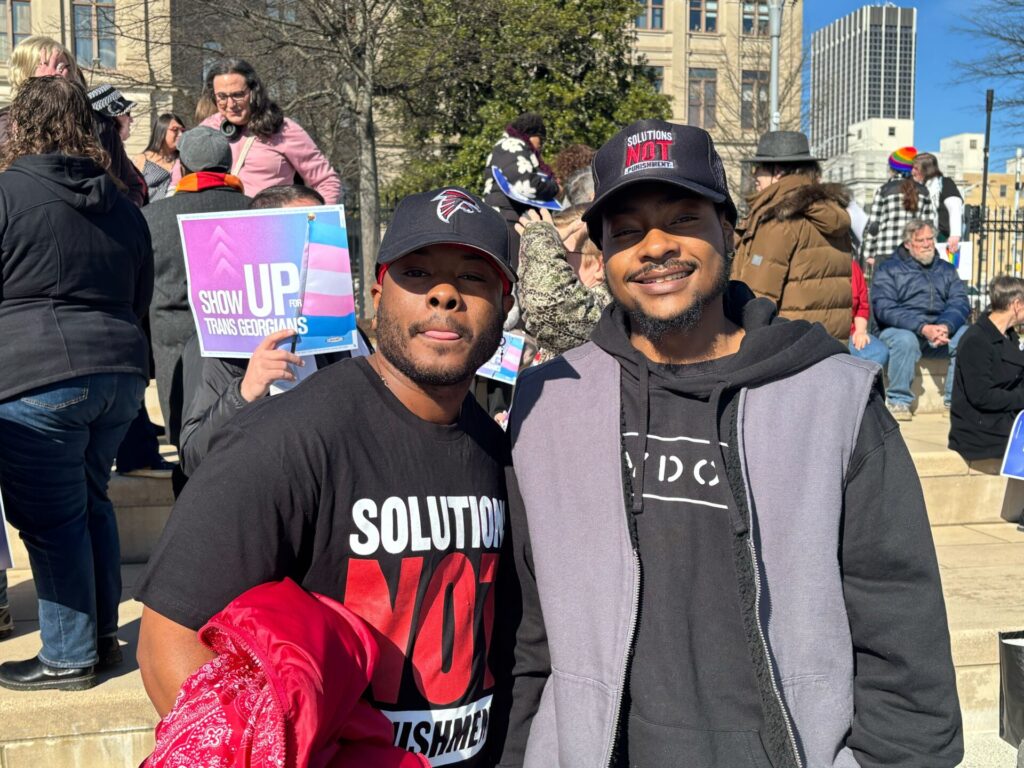
“To those legislators who think they can pass anti-trans and anti-Black policies without consequence, I want to make it loud and clear that we are ready,” said Dean Steed, Director of Communications at SnapCO and an out Black trans man. “Y’all thought the movement was sleeping. No. We were just building. We will make our presence known throughout the walls of the Capitol day in and day out. So, legislators consider this a warning. And to my community, consider this a call to action.”
Lynn Green, President of PFLAG Rome and the mother of a trans teenage son, answered the call to drive the 70 miles from her home in Rome, GA, to Atlanta to be in attendance at the rally. Green tells GLAAD that it is imperative now, more than ever, to show up for trans youth.
“As a parent of a trans child, I think it’s important that we show up, not only for our own kids but for our loved ones and for the people that don’t have somebody here to show up for them,” she said. “Just being in front of legislators, letting them put faces to the bills they’re looking at and potentially voting on. It’s so important to be here and fight for our kids.”
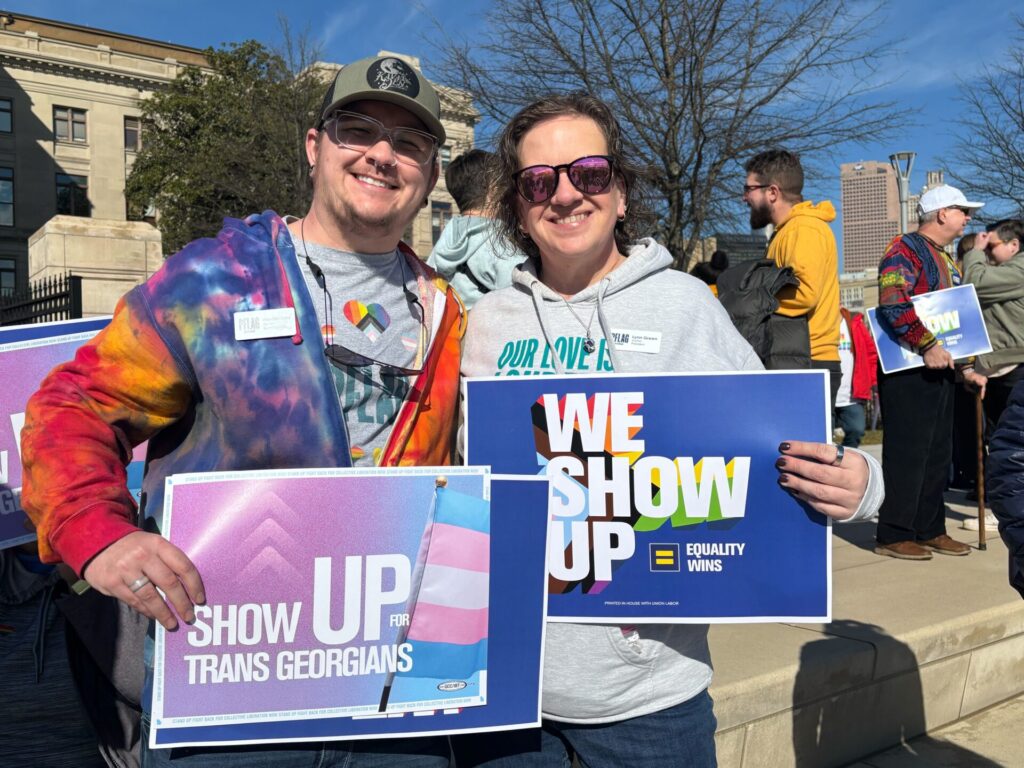
“When I think about being trans and being nonbinary here in Atlanta, I think about things that we absolutely need,” said Taylor Alxndr, drag performer and co-founder of Southern Fried Queer Pride. “We need access and respect of full bodily autonomy, we need the freedom to identify exactly as who we are regardless of any perceptions of us, we need safety, we need to be treated as equals, and we need adequate representation for the issues we face as a community,” they said.
And as Green stood inside of the State Capitol within arm’s length of Georgia lawmakers intent on making life for trans Georgians like her son increasingly difficult, she offered a word of advice.
“Please talk to trans people,” Green said. “Talk to parents of trans kids. Please make sure that you understand what the implications are because the implications are far worse than what they might imagine.”

